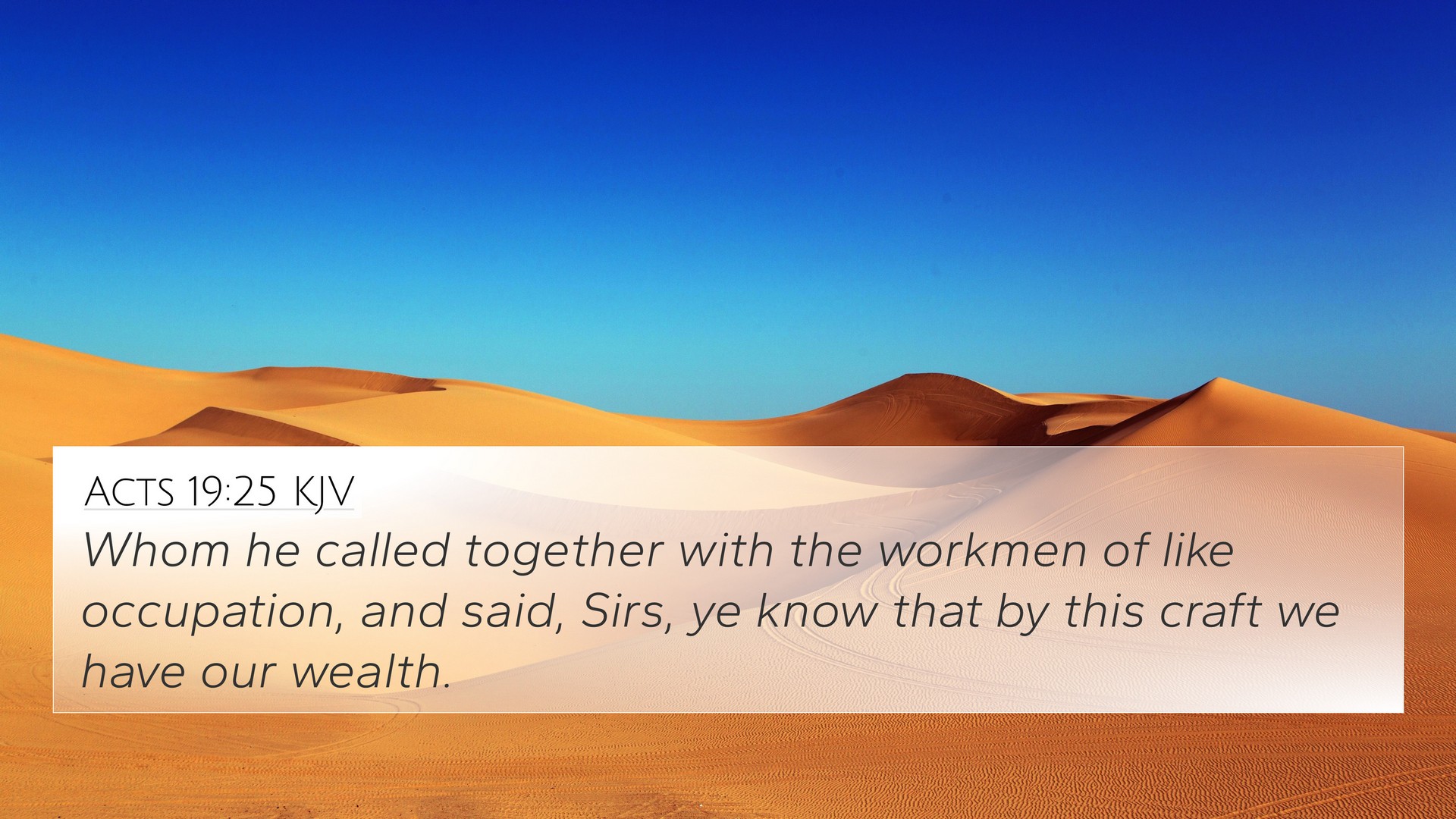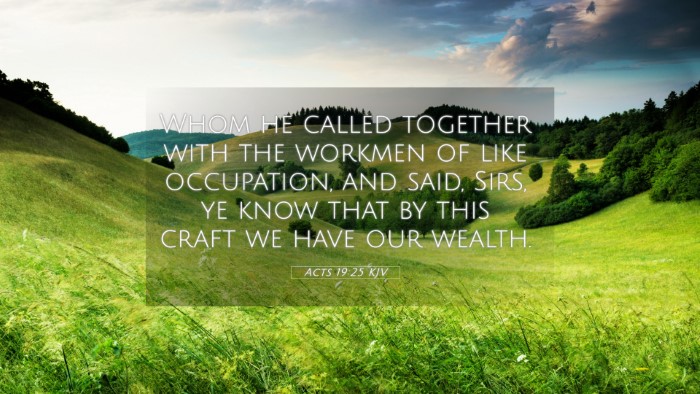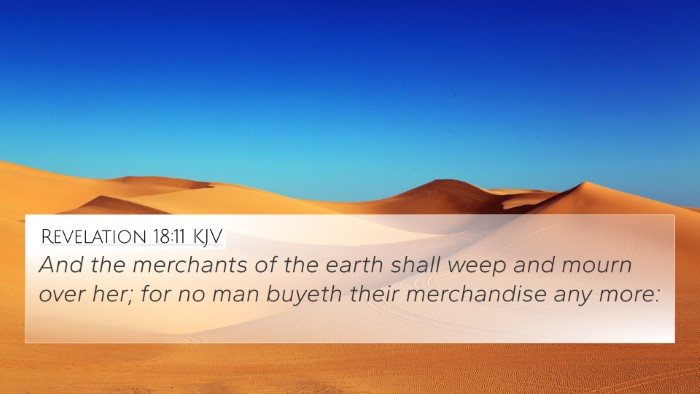Understanding Acts 19:25
Acts 19:25 states: "He called them together, with the workmen of like occupation, and said, Sirs, ye know that by this craft we have our wealth." This verse is situated in a narrative where the Apostle Paul has been preaching in Ephesus, leading to significant conversions and a decline in the worship of Artemis, resulting in economic unrest among craftsmen.
Contextual Background
In the context of Acts 19, Paul’s ministry affects the economic status of the silversmiths who craft idols, particularly those dedicated to the goddess Artemis. The craftsmen, feeling threatened by the spread of Christianity, come together to discuss their concerns.
Commentary Insights
-
Matthew Henry:
Henry suggests that the silversmith's gathering represents the worldly response to spiritual awakening. Their concern over economic loss highlights the tension between the material and the spiritual. Henry notes that the silversmiths are more worried about their livelihoods than the truth of the Gospel.
-
Albert Barnes:
Barnes emphasizes the idea that the craftsman’s industry has been built on falsehood through idol worship. He interprets their outcry as a reflection of human nature’s attachment to material wealth and the resistance to truthful teachings that threaten their interests.
-
Adam Clarke:
Clarke provides a sociological view, explaining that the prosperity of the craftsmen is tied to the religious practices of the region. He notes that their alliance illustrates the conflation of religion and commerce, and their fear underscores the economic ramifications of the spiritual revolution taking place under Paul’s ministry.
Thematic Connections
This verse encapsulates themes of economic struggle against the backdrop of spiritual awakening and touches on the conflict between faith and materialism.
Related Bible Cross-References
- 1 Timothy 6:10 - "For the love of money is the root of all evil." This verse connects the theme of material greed found in Acts 19:25.
- Exodus 20:4-5 - "You shall not make for yourself an idol." This foundational commandment frames the conflict in Ephesus regarding idol worship.
- John 16:33 - "In the world you will have tribulation. But take heart; I have overcome the world." This gives perspective to the struggles faced by disciples like Paul.
- James 4:4 - "Friendship with the world is enmity with God." This highlights the conflict of loyalty between God and material interests.
- Matthew 6:24 - "No one can serve two masters." This connects the idea of divided loyalty expressed in Acts 19:25.
- 2 Corinthians 5:17 - "Therefore, if anyone is in Christ, he is a new creation." It emphasizes the transformative power of the Gospel.
- Romans 12:2 - "Do not be conformed to this world." This aligns with the call to reject worldly values.
Practical Applications
The insights drawn from Acts 19:25 and the aforementioned commentaries underscore the necessity of recognizing and resisting the temptations of materialism in one's faith journey. They encourage believers to evaluate the impact of their spiritual convictions on their everyday lives and economic activities.
Tools for Bible Cross-Referencing
For those seeking to dig deeper into biblical themes and relational cross-references, consider using:
- Bible Concordance: A tool to locate words and explore their occurrences throughout Scripture.
- Cross-Reference Bible Study: Guides that map out connections between various scriptures.
- Bible Cross-Reference System: Using systems that catalog thematic and narrative links between Bible verses.
- Bible Reference Resources: Utilizing study Bibles that provide extensive notes and cross-references.
Conclusion
Acts 19:25 presents a compelling narrative of how economic interests can clash with spiritual truths. By cross-referencing with other biblically significant passages, readers can gain a more profound understanding of this theme and apply these lessons to their spiritual and material lives.








